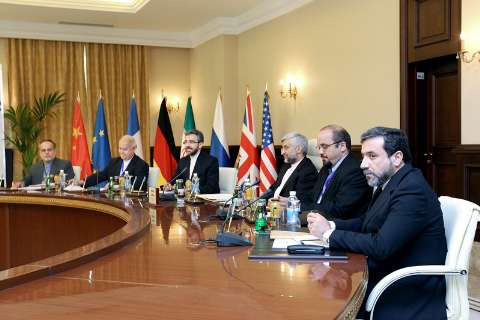Jalili and Bagheri showed

I did not say that every problem and issue Iran has with the P5+1, or to be more precise, with the West, would be solved.
But you had predicted that the Baghdad talks would be successful.
I had predicted that the Baghdad talks would not reach a deadlock, and they did not.
For what reason do you give credit to Bagheri and Jalili for the relative success, as Iran's representatives in these negotiations?
In my opinion, it was Bagheri and Jalili who, in Istanbul and Baghdad, were able to show the West that Iran is serious. Iran has not raised a white flag, but it does seek a peaceful agreement. I think this is very important.
Do you believe Bagheri and Jalilil's presence to be so effective?
Certainly. In the same way that there are differences between El-Baradei and Amano, there are also differences between Jalili and the rest. If a representative's presence is not important, why would we need to sit at the negotiating table? We could easily fax or e-mail our Western counterparts the red lines and tell them that if they accept the e-mails, we will come to Moscow, Istanbul, Baghdad, or Vienna; but if they don't, we will not take up any of their time. You have your red lines and you sit at the negotiation table having them in mind.
Some are of the opinion that the Westerners do not believe in these negotiations.
I do not accept such a conclusion. It was not only Jalili and Bagheri who negotiated with goodwill and conviction. Ms. Helga Schmid, Ms. Ashton's deputy, said in a letter to Mr. Bagheri, that with regard to the West's concerns over 20 percent enrichment, they propose some interesting opportunities for cooperation, which would be to Iran's advantage in other nuclear fields, and she goes on to say that their experts should meet with our experts to discuss the details.
The Westerners are like us; some of them do not want the nuclear issue to be resolved, and on the other side, some really do hope to find a peaceful solution.
Why are some Westerners not looking for solutions?
This is because we have many issues with the West; our nuclear activities are a good excuse for sanctions, threats, and pressure. Let's imagine you are one of those Westerners who want the Islamic Republic of Iran to collapse or at least become very weak. Would you be happy if differences between Iran and the West reach a minimum and the nuclear dossier is closed, or would you rather be happier if the Iran-P5+1 talks fail and new sanctions are enforced?
Do you agree that the US is one of those who want our system to fail or be weakened?
No, I do not agree.
But in reality they are. It has been 33 years that US governments, one after another, have looked to hurt our country and even cause the collapse of the Islamic Republic. You do accept this, don't you?
I don't accept this either. In the US, there are groups and individuals who have the same opinion as you, but there are also those who do not wish for the Islamic Republic to collapse or be weakened.
How do you assess the Moscow talks?
I think they will be positive.
Despite all that has happened in the past few weeks?
Let me put it this way; these developments have made Jalili and Bagheri's task more difficult in Moscow, but they in no way mean that the Moscow talks will fail.
What is the reason for your optimism?
It is because I think our country has reached the conclusion that the costs of the nuclear program have become too high, and we might be able to find a way to not have to pay the high costs of such heavy sanctions.
Do you hold this optimism with regard to the West as well?
Yes. They have also officially recognized Iran's right to 3.5 to 5 percent enrichment for use in nuclear power plants.

